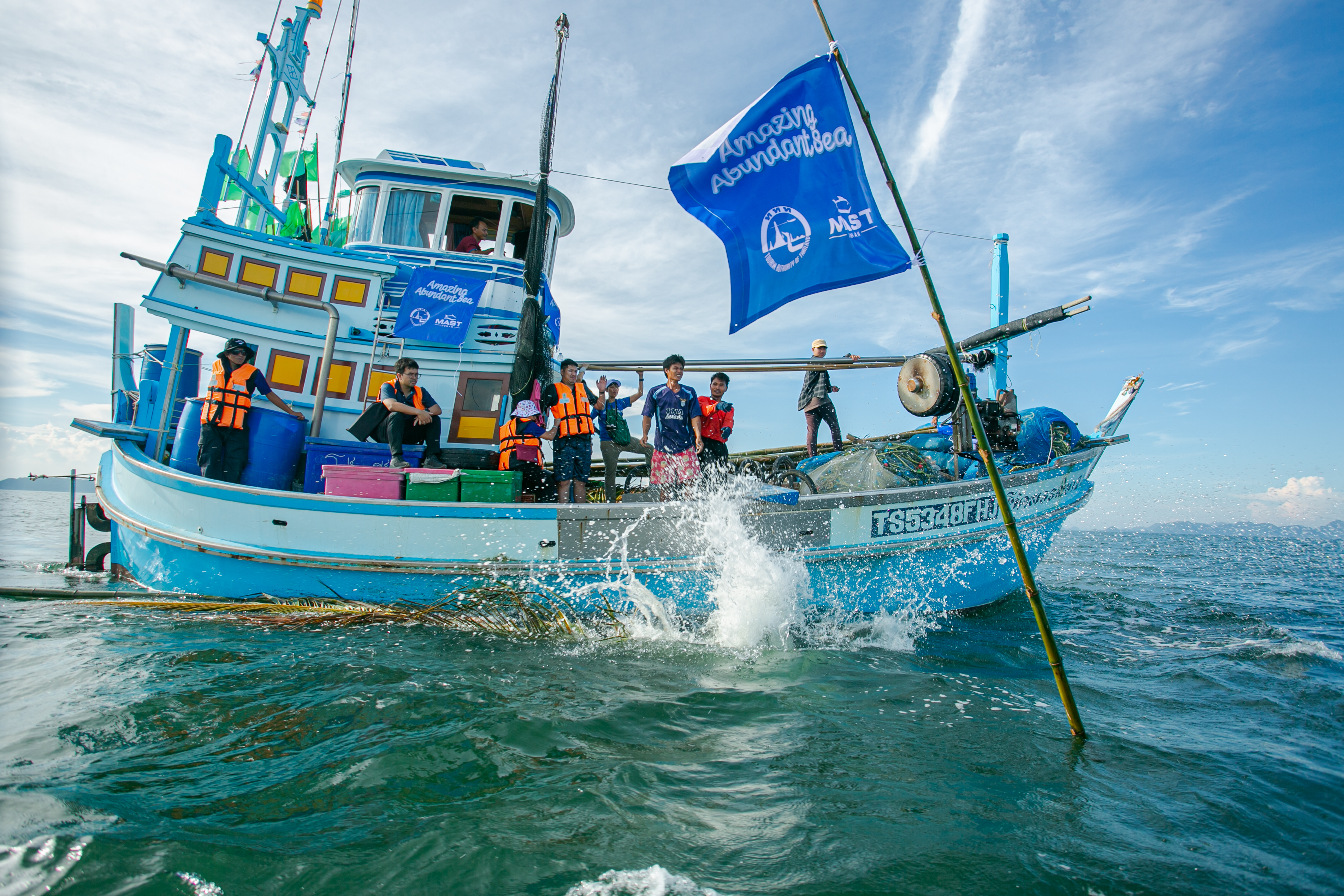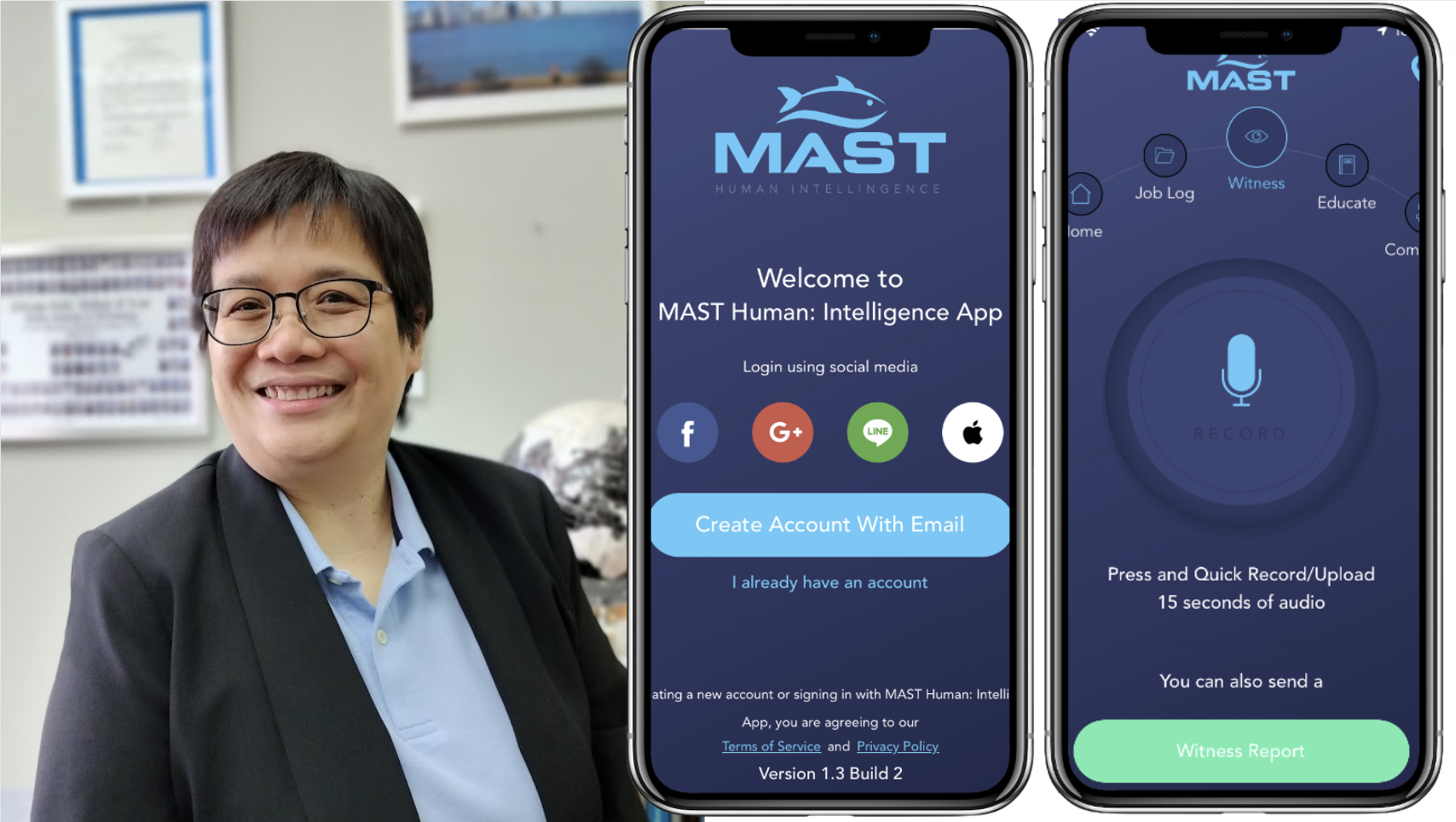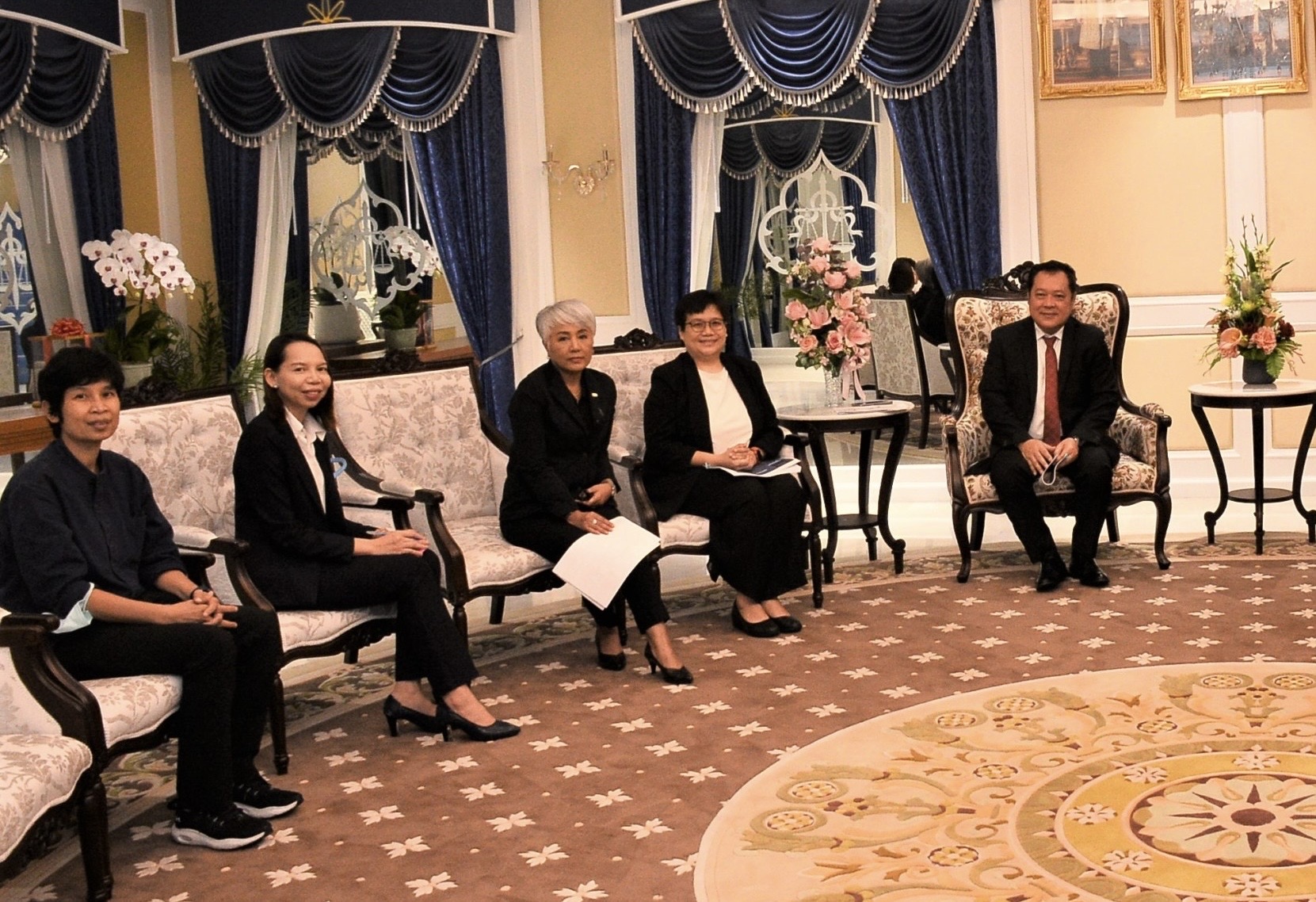
Thailand has long grappled with significant challenges linked to human trafficking, notably within industries such as fishing and seafood processing. Numerous independent reports have shed light on instances of forced labor, exploitation, and human trafficking within the Thai fishing sector. According to the Global Slavery Index, an estimated 610,000 individuals endure conditions of modern slavery in Thailand, with many subjected to exploitation within the fishing sector.
MAST Human leverages technology to aid victims of human trafficking. Ms. Sukkree's firm belief in technology's potential for prevention led to collaboration with Edge Case Capital Partners, a California-based tech company. Together, they developed the MAST Human Intelligence App, tailored to track worker safety and welfare while preventing labor rights violations and human trafficking. Additionally, the app serves as a communication platform, fostering workplace awareness and empowering workers to overcome vulnerabilities.

The app adopts a worker-centric approach, empowering individuals while targeting criminals. Utilizing data collection and predictive behavior modeling, it offers real-time assistance to those in need. With features including location tracking, emergency alerts, criminal reporting, worker education, and crowdsourced communication, the app caters to diverse linguistic backgrounds, available in English, Thai, Khmer, and Burmese languages, while its encrypted and secure design ensures user privacy and safety. Within a few months, the app garnered 12,000 users, leading to investigations prompted by user alerts. Presently, the orghanization aims to expand their user base to 400,000 active users, focusing on habit automation and engaging law enforcement. This expansion will enable to extend the coverage in the fishing industry and other sectors in the future. During the COVID-19 pandemic, the MAST Human Intelligence App proved to be invaluable for workers.

MAST Human collaborated with the Thai Government, civil society organizations, and international entities such as the United Nations Office on Drugs and Crime (UNODC) from the start. Participating in the SE4U Self-Paced Course on the UN Convention against Transnational Organized Crime (UNTOC) broadened their understanding of the international legal framework and brought fresh perspectives to their work. Attending the 11th session of the Conference of the Parties to the UNTOC in October 2022 was a transformative experience, elevating her work to new heights. Subsequently, Ms. Sukkree initiated collaboration with the Thai Government, fostering a partnership to tackle organized crime collectively. MAST Human closely collaborates with Thai law enforcement, the Department of Special Investigation (DSI), utilizing the app's alert system to notify authorities in case of incidents. This collaboration includes discussions with the Department of State for Investigation regarding interventions or rescue operations prompted by alerts from the app. Leveraging technology as a tool, along with the involvement of law enforcement and cooperation with the Ministry of Justice.
“Engaging with the government is essential, as they have obligations and functions that align with our objectives,” – says Ms. Sukkree. “Collaborating with stakeholders from diverse backgrounds allows us to drive change collectively, even if we don't always see eye to eye on every aspect. Learning from previous experiences and engaging with organizations like UNODC provides valuable insights into compliance requirements and how non-profits like ours can contribute effectively”.
"When combating organized crime, emerging technology plays a crucial role," Ms. Sukkree notes. "Our technology has garnered attention in the fishing industry, particularly from the Thai Government and international forums. Engaging with government departments and participating in global conferences like the Bali Process has opened doors for collaboration and innovation."
Gaining interest and attention becomes easier when non-profits possess technology that can make a difference. Without it, their contributions to government efforts, such as intervention, rescue, or prosecution, would be limited. The technology enables MAST Human to facilitate successful prosecutions and collaborations with NGOs, initiating crucial conversations and dialogues. Overcoming challenges lies in bridging the gap between traditional NGO work and innovative technology solutions.
Recently MUST Human collaborated with the Tourism Authority of Thailand and local authorities in Marine Conservation and introduced innovative approaches focused on community advocacy and culturalism by using ecotourism as a driving force to combat human trafficking and promote sustainable fishery. "By empowering communities with alternative income sources, we address overfishing and alleviate poverty – the root cause of trafficking. This holistic strategy, though unconventional, effectively addresses interconnected issues. With technology and innovative strategies, we can engage stakeholders and drive progress swiftly", emphasizes Ms. Sukkree.
Collaboration with law enforcement, both domestically and internationally, is essential in addressing issues such as forced labor and human trafficking. While primary focus of MUST Human is Thailand, their adaptable solutions can benefit governments worldwide. Engaging with civil society organizations can further amplify their impact and foster collaboration on ethical and effective technological solutions.
Visit the MAST Human (MAST) WhatsOn Profile to connect, network and further information or visit their website.
Visit the UNODC-Civil Society Unit’s website for training opportunities.